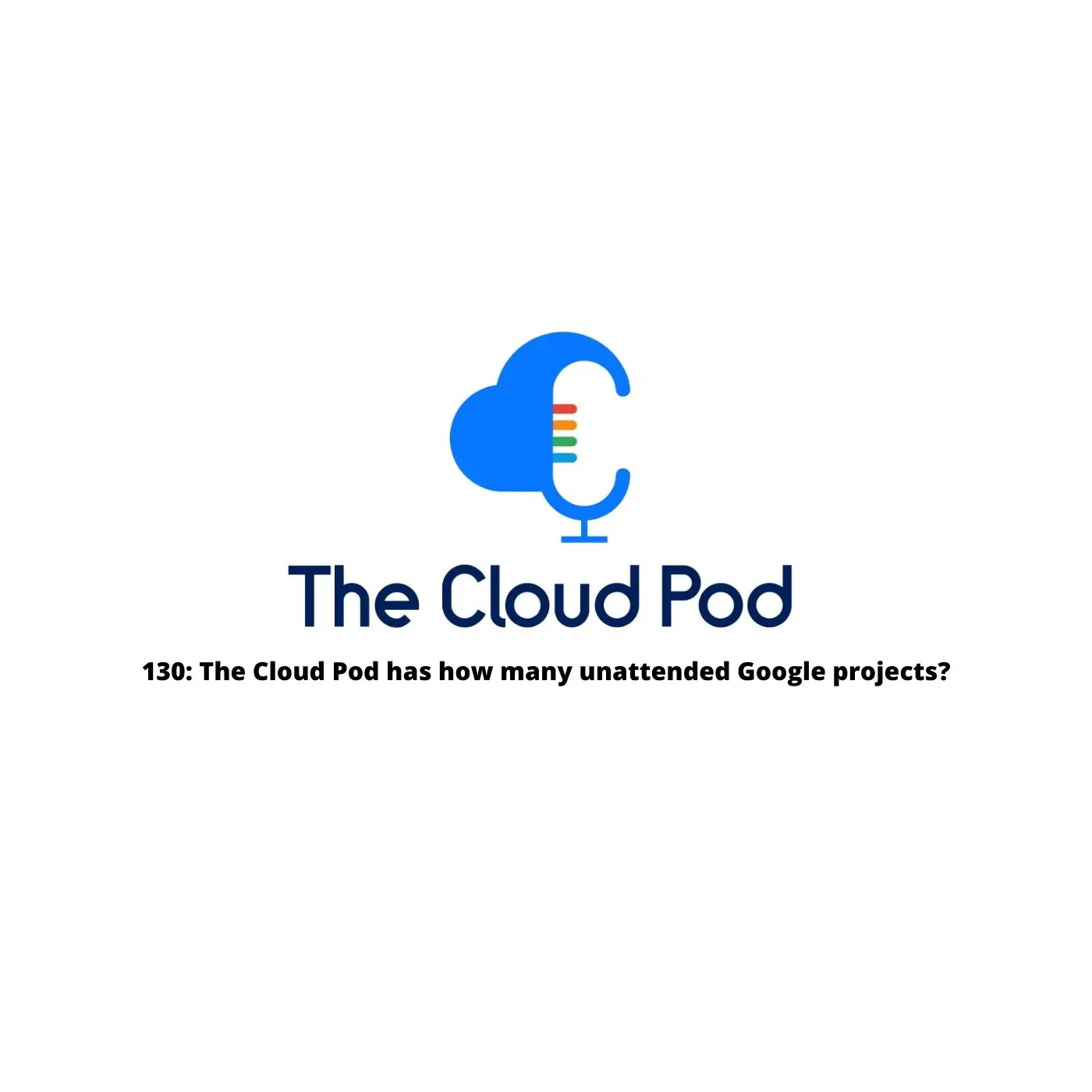
On The Cloud Pod this week, it’s been an interesting few days in the cloud, so the team members have made themselves comfortable with plenty of adult beverages to keep them going. Also, Elastic has forked everyone with its latest Elasticsearch move.
A big thanks to this week’s sponsors:
- Foghorn Consulting, which provides full-stack cloud solutions with a focus on strategy, planning and execution for enterprises seeking to take advantage of the transformative capabilities of AWS, Google Cloud and Azure.
- JumpCloud, which offers a complete platform for identity, access, and device management — no matter where your users and devices are located.
This week’s highlights
Elastic has modified the Elasticsearch Python client so it won’t work with forked versions, including the relatively recently released OpenSearch 1.0.
AWS CloudWatch Synthetics now supports visual monitoring. Customers with web apps can see defects that can’t be scripted but would be visible to end users.
Google introduces the Unattended Project Recommender. It uses machine learning to identify projects that have likely been abandoned and forgotten about, so you can cull them from the cloud.
Top Quotes
“People were originally attracted to Elasticsearch because it was an open source project. So this [amending the Elasticsearch Python client] is taking away one of the main reasons they were able to acquire the users they did. I don’t get the strategy, unless they’re pulling a ripcord right now, because they’re bleeding.”
“I know a lot of companies are moving their services into the cloud, and a lot of security engineers are restricting outbound access, or tightly controlling egress. These things [Google’s Private Service Connect] have to happen — these things are absolutely needed — to keep them secure, and allow those companies to sell their services. Good catch-up feature.”
General News: We’re Not Angry Just Disappointed
Elastic amends Elasticsearch Python client so it won’t work with forked versions — and proves it knows how unpopular this is by blocking GitHub comments. This is forcing people to choose sides, and is a really disappointing move.
AWS details its commitment to keeping OpenSearch and Elasticsearch compatible with open source. Elastic has managed the impossible: it’s made AWS look like the good guys.
Amazon Web Services: Unbreaking The Rules
Amazon’s senior cloud leader Charlie Bell is leaving the company after more than 23 years. Knowing how fast AWS moves, we feel tired just thinking about working there that long.
Amazon EC2 Auto Scaling enhances Instance Refresh with new features. Clearly the company is listening to its customers (in this respect, at least.)
AWS WAF now offers managed rule group versioning. If a rule breaks your app, it’s so hard to roll it back: this could be a lifeline.
Amazon CloudWatch Synthetics now supports visual monitoring. This will be great for QA teams.
Google Cloud Platform: No Sacrifice Required
Google adds new histogram features in Cloud Logging to troubleshoot faster. This is a really cool feature: We especially like the ability to time travel to see what happened before a spike.
Google’s Private Service Connect has been released to general availability. This is a great catch-up feature for network security teams.
Google announces GKE services can now automatically register to Service Directory. This is nice, especially since it will stop large numbers of services overwhelming a single cluster.
Google introduces Unattended Project Recommender to help find and euthanize unattended projects. One bonus is that it only takes one click to close the project — as opposed to AWS, which requires you to sacrifice your firstborn.
Google is making it easier to troubleshoot GKE apps, with contextual cloud monitoring data accessible directly from Cloud Logging. This will be very valuable for debugging.
Azure: Undisastrous
Several new Azure enhancements are coming for Azure Automation, including Hybrid Worker, AD support, and Powershell 7 support. This big burst is a weird way to announce new features.
Azure introduces global disaster recovery via Azure Site Recovery. This will be a comfort to anyone who has already gone through a major outage and wants to be better prepared in the future.
TCP Lightning Round

Other Headlines Mentioned:
- AWS Cloud9 introduces new features to browse CloudWatch Logs, S3, and use EC2 instance profiles
- Announcing Amazon CloudWatch cross-account alarms
- AWS Systems Manager OpsCenter launches operational insights to identify duplicate items and event sources with unusual activity
- AWS Systems Manager OpsCenter launches operational insights to identify duplicate items and event sources with unusual activity
- Now enable auto-approval of change requests and expedite changes with AWS Systems Manager Change Manager
- Amazon RDS Proxy can now be created in a shared Virtual Private Cloud (VPC)
- Athena can now write query results in Parquet, Avro, ORC and JSON formats
- Introducing 79 new resource types in the CloudFormation Registry
- Announcing new AWS Wavelength Zones in Chicago, Houston, and Phoenix
- Amazon S3 on Outposts now supports sharing across multiple accounts
Things Coming Up
- Announcing Google Cloud 2021 Summits [frequently updated]
- Amazon re:Inforce — August 24–25 — ** CANCELLED **
- Google Cloud Next 2021 — October 12–14, 2021 — Registration is now open
- KubeCon — October 11-15th — Los Angeles, California + Virtual
- HashiConf — October 19th–October 22nd — Virtual
- SnykConf 2021 — October 5–7, a free virtual conference
- AWS re:Invent — November 29–December 3 — Las Vegas
- Oracle Open World (no details yet)


